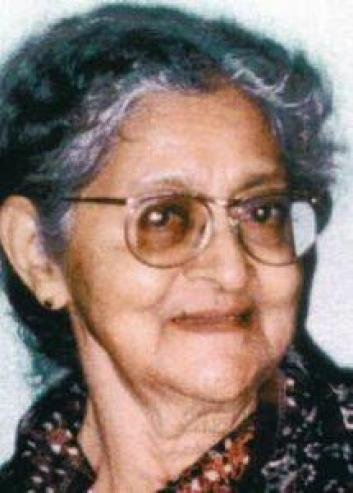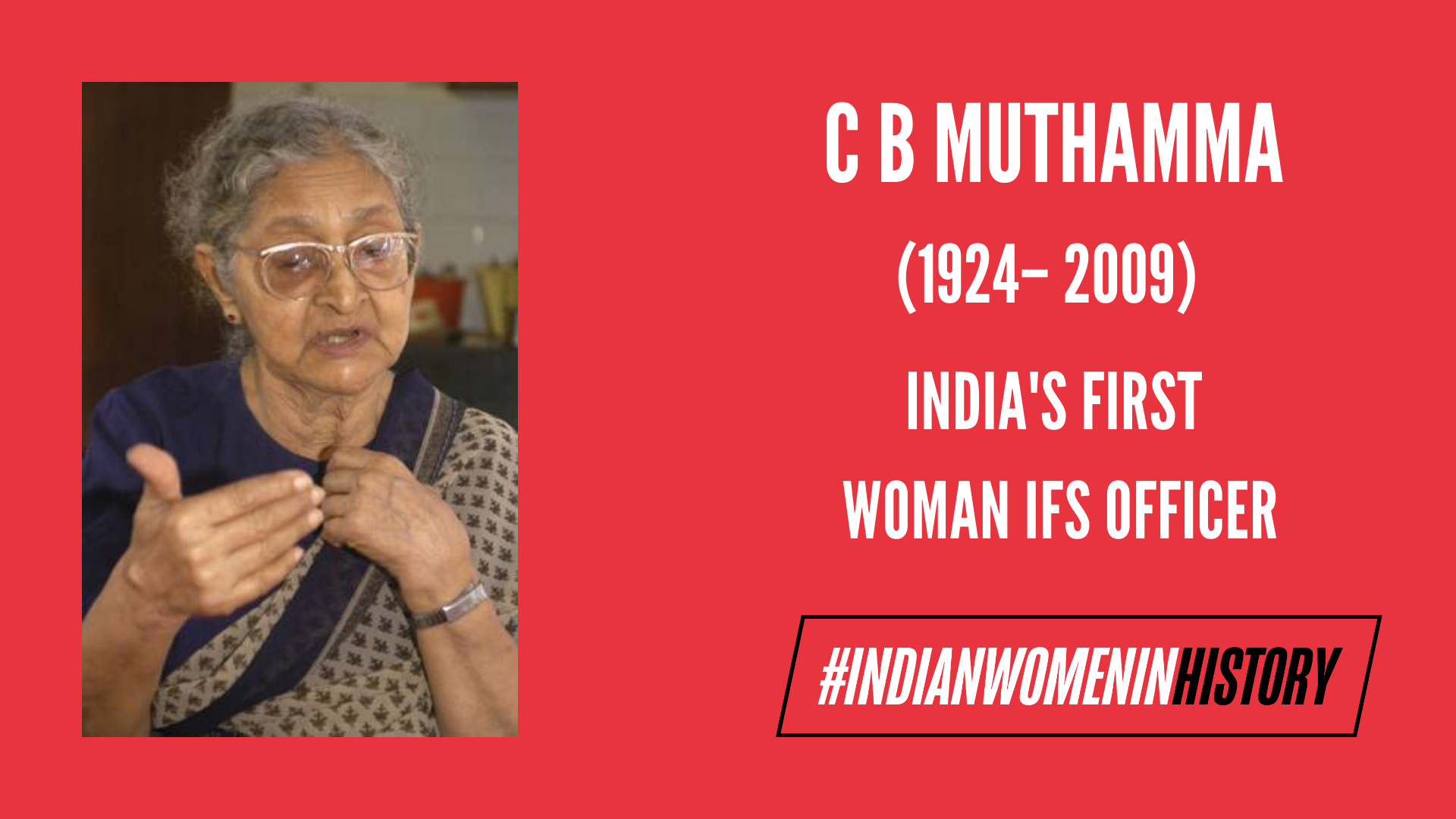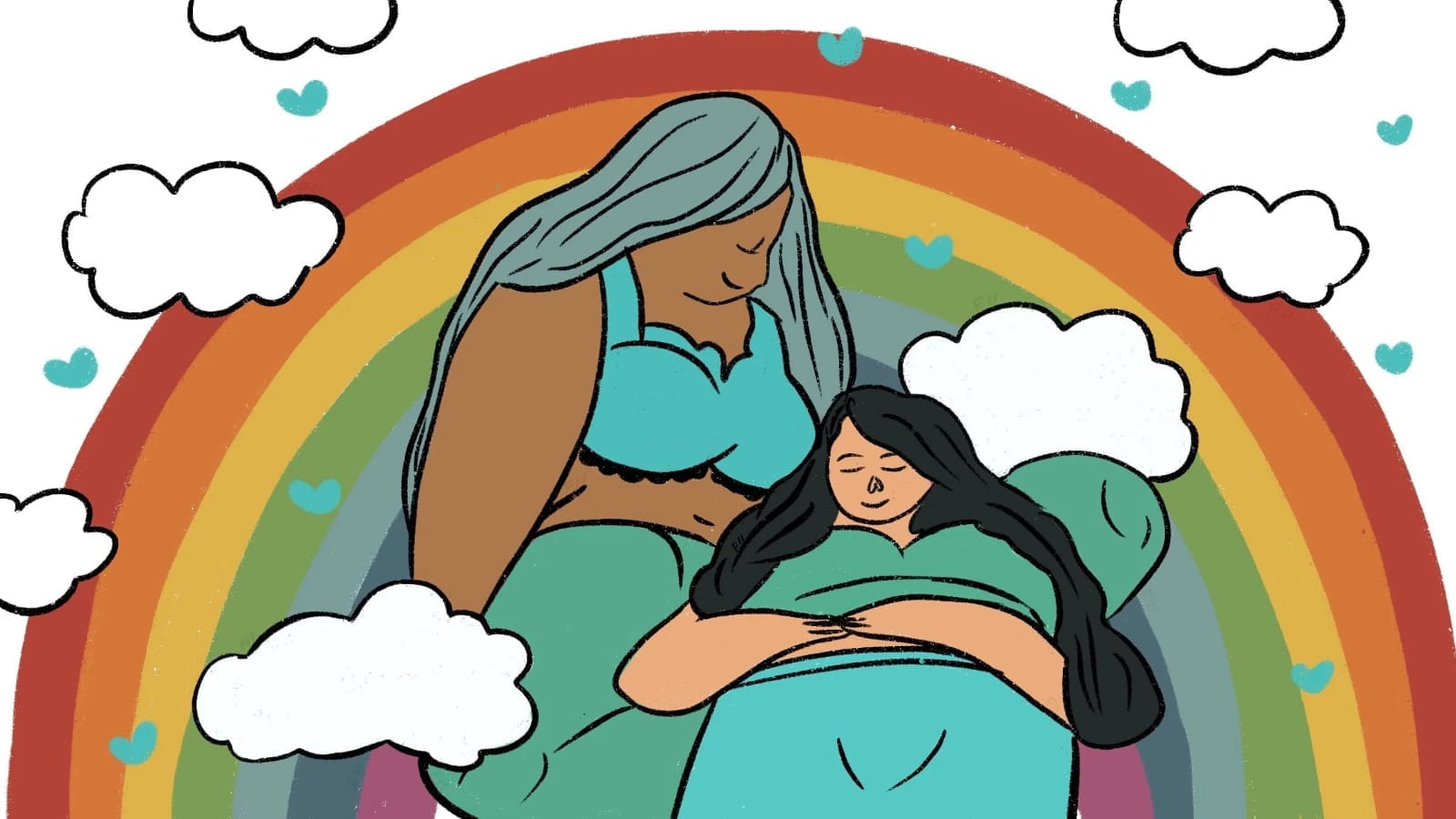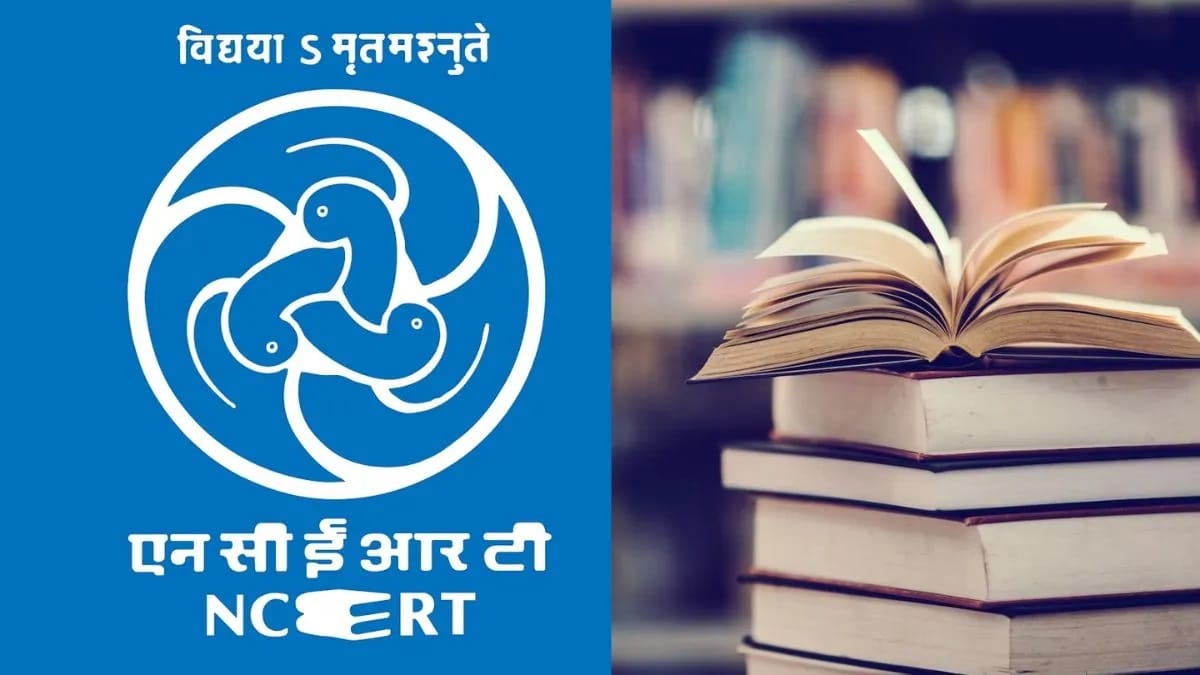A survey conducted in 2019 revealed women in India are paid 19% less than men. While the participation of women in the workforce is only 26%, with merely 9% being in any kind of leadership position, the practices of sex-based bias and stereotypes at formal and informal workplaces gravitate from structural violence over their bodies to seeking organisation’s permission to be under wedlock as in the case of the first Indian woman Ambassador: C B Muthamma.

Early life
Chonira Belliappa Muthamma, the first woman to clear the Indian Civil Services examinations, the first woman Indian Foreign Service (IFS) officer, the first Indian woman diplomat, later the first Indian woman Ambassador (or High Commissioner), was born in Virajpet in Karnataka’s Kodagu (then Coorg), a coffee-growing district in southern India on January 24, 1924. Muthamma’s father, who was a forest officer, passed away when C B Muthamma was nine years old. Being a single parent raising four children, her mother made it a priority to give them the best possible education. She did her schooling in St Joseph`s Girl School in Madikeri. Later, she moved to Chennai to pursue her undergrad from the Women’s Christian College and her Master of Arts degree in English Literature from Presidency College, Chennai.
In the end, she was given abysmally low marks, in spite of which she topped the Foreign Service list and became the first woman IFS officer in 1949. When she entered the service, Muthamma was made to sign an undertaking that she may be required to resign from her job once she got married.
In 1948, a year after independence, C B Muthamma cleared the UPSC examination, becoming the first woman to join the Indian Civil Services. Her struggles started with the UPSC Board interview where the Board members tried to persuade her to change her first option for the IFS. In the end, she was given abysmally low marks, in spite of which she topped the Foreign Service list and became the first woman IFS officer in 1949. When she entered the service, Muthamma was made to sign an undertaking that she may be required to resign from her job once she got married. “This was clearly against the Constitution, but in those early days, it did not occur to me to challenge that rule…there was an attitude of vengefulness on the part of the men—a feeling that should be kept in their places, and that they should be encouraged to leave,” she cited this incident in her collection of essays, aptly entitled, Slain by the System.
Muthamma Vs Union of India

With this bizarre rule intact at the Ministry of External Affairs, Mira Sinha Bhattacharjea and Rama Mehta were among those who had to leave the service, points out Kishen Rana in the Indian Foreign Affairs Journal. In addition to facing everyday prejudices against women in Indian society, which got reflected in the ministry, Muthamma was not accepted by several Ambassadors citing various reasons as to why it was inappropriate to send a woman to the station. Finally, she was first posted to the Indian Embassy in Paris. It was there she understood that it is not only Indian diplomats who had problems with a female colleague, but also her peers in other Embassies who were equally not at ease in dealing with a woman in workplace. She then served in Rangoon, London, and on the Pakistan and America Desks in the Ministry of External Affairs in New Delhi.
she was first posted to the Indian Embassy in Paris. It was there she understood that it is not only Indian diplomats who had problems with a female colleague, but also her peers in other Embassies who were equally not at ease in dealing with a woman in workplace.
The tipping point for her was when she was overlooked for promotion to Grade I, the highest level of Secretary to Government of India, of the IFS. In 1979, she brought the petition against the government, the Appointments Committee of Cabinet (ACC) and Ministry of External Affairs, on the grounds of professional gender bias and discrimination contradicting Article 14 (equality before the law) and Article 16 (equality of opportunity in matters of public employment) of the Constitution.
She further challenged Rule 8(2) of IFS (Conduct & Discipline) Rules, 1961 which stated that, “a woman member of the service shall obtain the permission of the Government in writing before her marriage is solemnised. At any time after the marriage, a woman member of the Service may be required to resign from service, if the government is satisfied that her family and domestic commitments are likely to come in the way of the due and efficient discharge of her duties as a member of the service,” and Rule 18(4) of IFS (RCSP) Rules, 1961 which noted that, “no married woman shall be entitled as of right to be appointed to the service.”
The Supreme Court Bench headed by Justice V.R. Krishna Iyer commented that this, “…bespeaks a story which makes one wonder whether Articles 14 and 16 belong to myth or reality.” Solicitor General, Soli Sorabjee opposed the petition saying that the rule overlooking women for ambassadorship was justified. He argued that the chances of leakage of confidential information of strategic significance were a dangerous risk, and so Muthamma’s case to be made an ambassador was rightly rejected.
Though C B Muthamma was promoted to Grade I and posted as India’s Ambassador to Hungary while the trail was ongoing, the Court struck down the blatant prejudice against women’s rights in India by the iconic judgement of the Bench headed by Justice V.R. Krishna Iyer.
Expert Judgements
“That on numerous occasions the petitioner had to face the consequences of being a woman and thus suffered discrimination though the Constitution specifically under Article 15 prohibits discrimination on grounds of religion, race caste, sex or place of birth and Article 14 of the Constitution provides the principles of equality before law….”
“If a fragment of these assertions were true, unconstitutionality is writ large in the administrative psyche and masculine hubris. If there be such gender injustice in action, it deserves scrupulous attention from the summit…“
“If a woman member shall obtain the permission of the government before she marries, the same risk is run by the government if a male member contracts a marriage. If the family and domestic commitments of a woman member of the Service is likely to come in the way of efficient discharge of duties, a similar situation may well arise in the case of a male member. In these days of nuclear families, inter-continental marriages and unconventional behaviour, one fails to understand the naked bias against the gentler of the species.”
“If a married man has a right, a married woman, other things being equal, stands on no worse footing. This misogynous posture is a hangover of the masculine culture of manacling the weaker sex forgetting how our struggle for national freedom was also a battle against woman’s thraldom.”
“Freedom is indivisible, so is Justice. That our founding faith enshrined in Articles 14 and 16 should have been tragically ignored vis-a-vis half of India’s humanity, viz., our women, is a sad reflection on the distance between Constitution in the book and Law in Action.”
“In the rat race of Indian official life, seniority appears to be acquiring a religious reverence. We have had the advantage of the presence of the learned Solicitor-General, appearing for the Union of India. With characteristic fair-ness he has persuaded his client to agree to what we regard as a just gesture, viz., that the Respondent-Union of India will shortly review the seniority of the petitioner, her merit having been discovered and her seniority to Grade II being recognised.”
The Court dismissed the petition but directed the Government to review the petitioner’s case in light of the only remaining element of her complaint—that relating to the promotion of people junior to her. The Court emphasised the need to overhaul all service rules to remove discrimination.
This ruling served as an aid at many women’s meeting in support of their struggle for equality. She thus became the first woman from within the service to be appointed Ambassador. Later, she served as ambassador in Accra in Ghana, and afterwards, she was made the Indian Ambassador to The Hague in the Netherlands. She retired as one in 1982 after 32 years of service.
Also read: Padmaja Naidu : The Longest Serving Female Governor | #IndianWomenInHistory
A Trailblazer For Working Women
Foreign Secretary Nirupama Rao recalls C. B. Muthamma as someone who’d waive away references to being the ‘first woman diplomat’ by saying, “Someone’s got to be first—I was old enough to have been there first.” Arundhuti Ghosh, the fiery diplomat who fought for India’s concerns on nuclear issues in Geneva, remembers her as a formidable personality and feminist who always showed consideration for people who worked below her. “For example, once she pointed out that Joint Secretaries have two air conditioners in their office rooms while non officer-grade staff had none and she gladly gave up her own A/C to share with other staff. That was Muthu for you,” Gosh said.
After retiring, she continued to be an activist. C B Muthamma was nominated as the Indian member of the independent Palme Commission, a non-governmental Commission on Disarmament and Security Issues, which reported directly to the United Nations. The spinster remained active in social movements, helping riot victims and citizen groups, her philanthropy knew no bounds. In her book the Slain by the System (2003), a collection of essays criticising of the Indian political system and its political class, she writes, “Looking back, I cannot help but conclude that my tenure with the external affairs ministry was one long tussle with the anti-women bias.” She also co-authored The Essential Kodava Cookbook (2000), compiling forgotten recipes from Coorg for the culinary enthusiast inside her. She passed away on October 14, 2009 in Bangalore at the age of 85.
Also read: Sulochanabai Dongre: The Woman Who Advocated Birth-Control In Dalit Feminism | #IndianWomenInHistory
C B Muthamma proved that as long as social justice is an integral part of our constitutional fundamentals, gender justice will remain a non-negotiable article of faith. She not just managed to get the Supreme Court agree that gender discrimination did exist in the foreign office but also broke many visible and invisible barriers to set a level playing field for women in IFS, women in civil service and women in all workforce.
References
About the author(s)
Nivedita Jayakumar is a Computer Science engineer who is now doing her Master's in Communication and Media.




